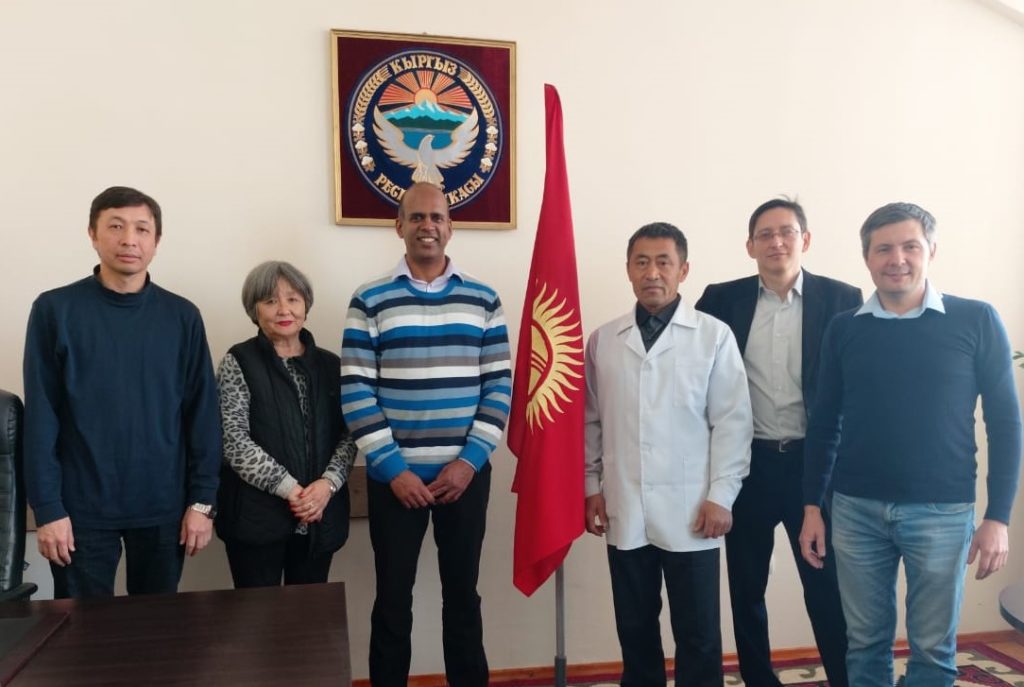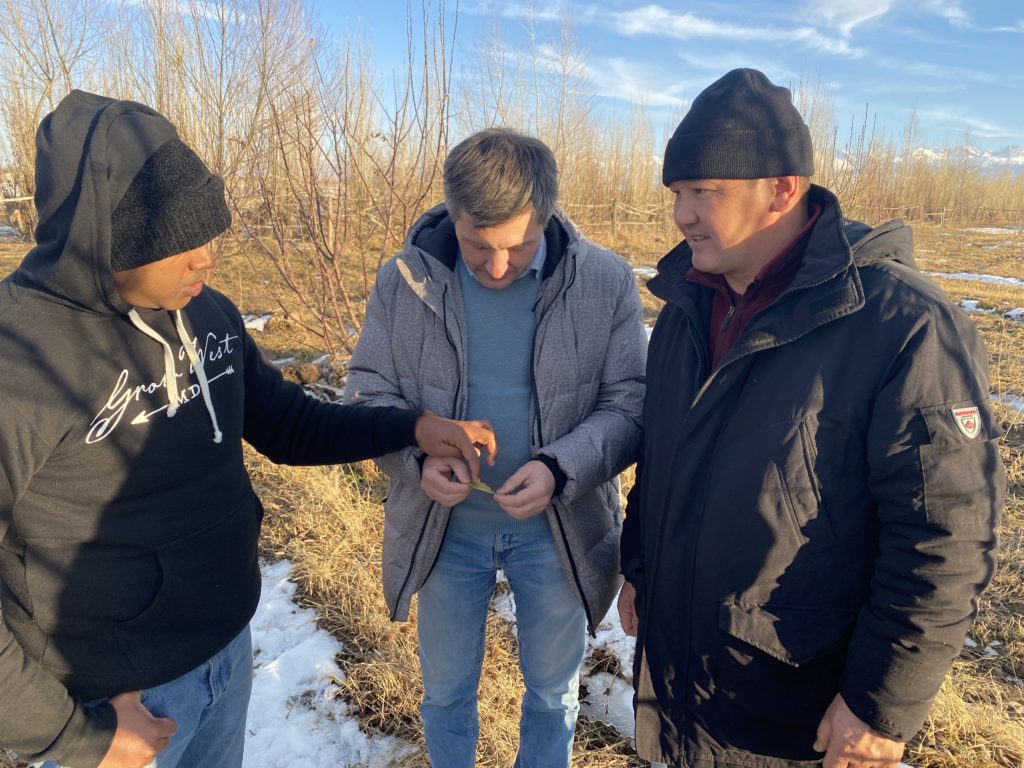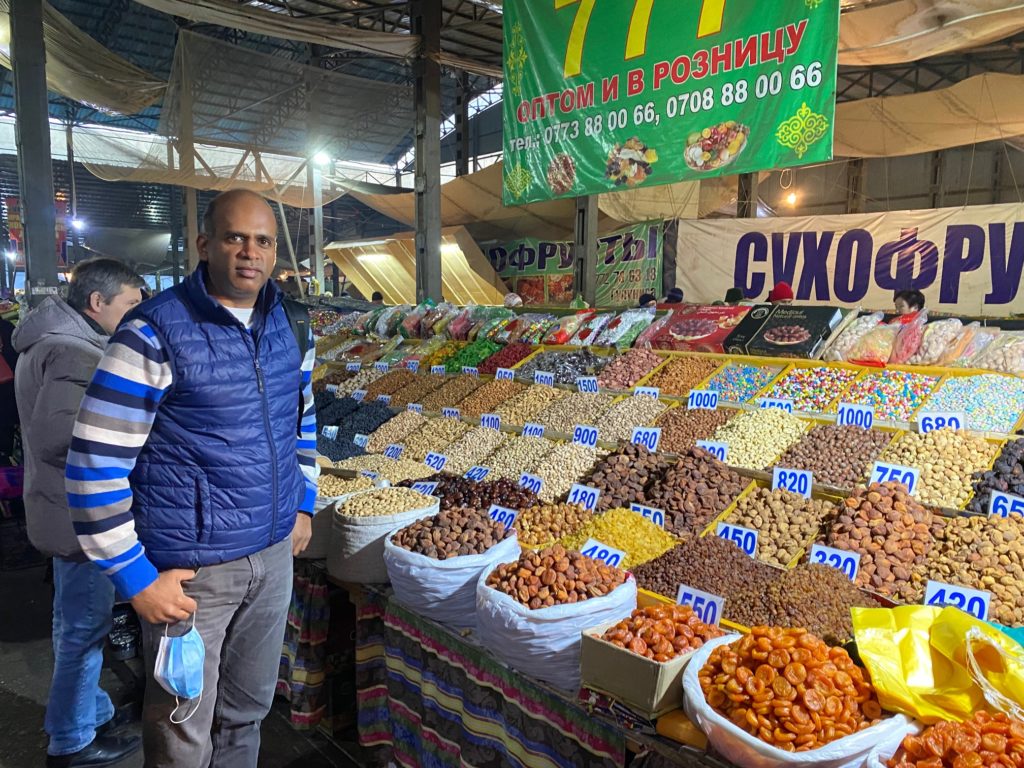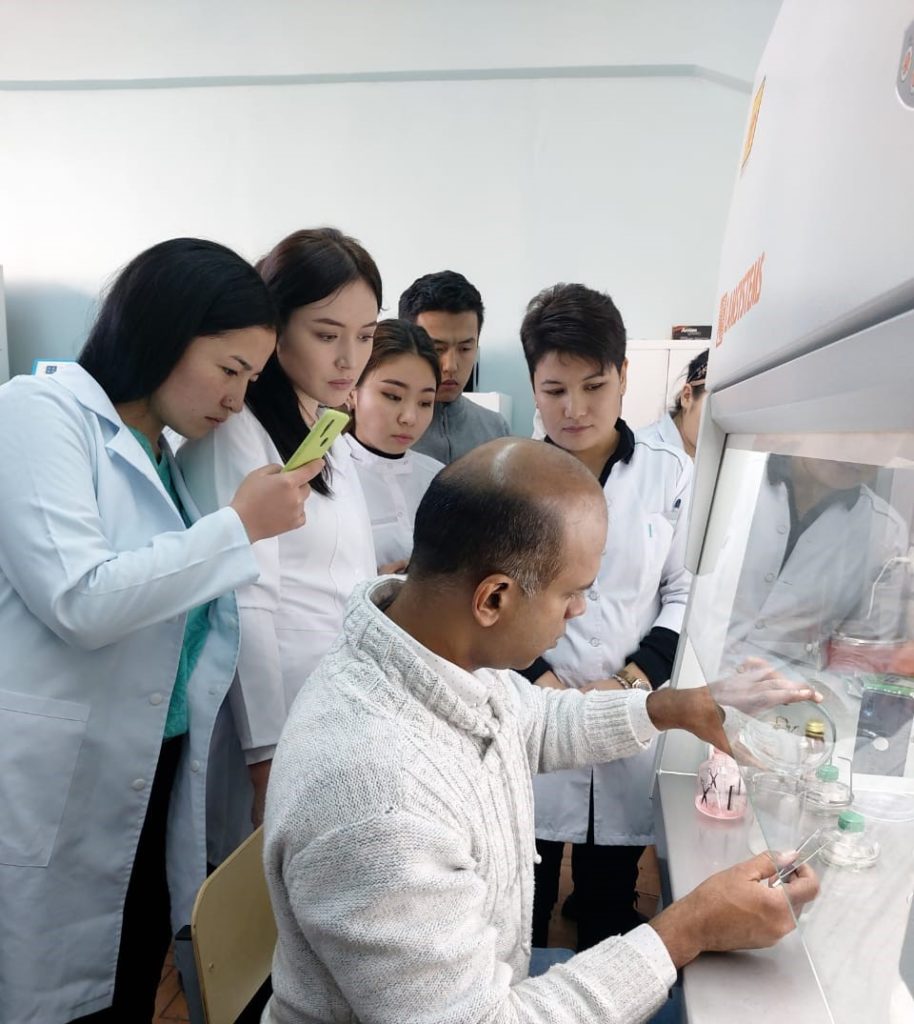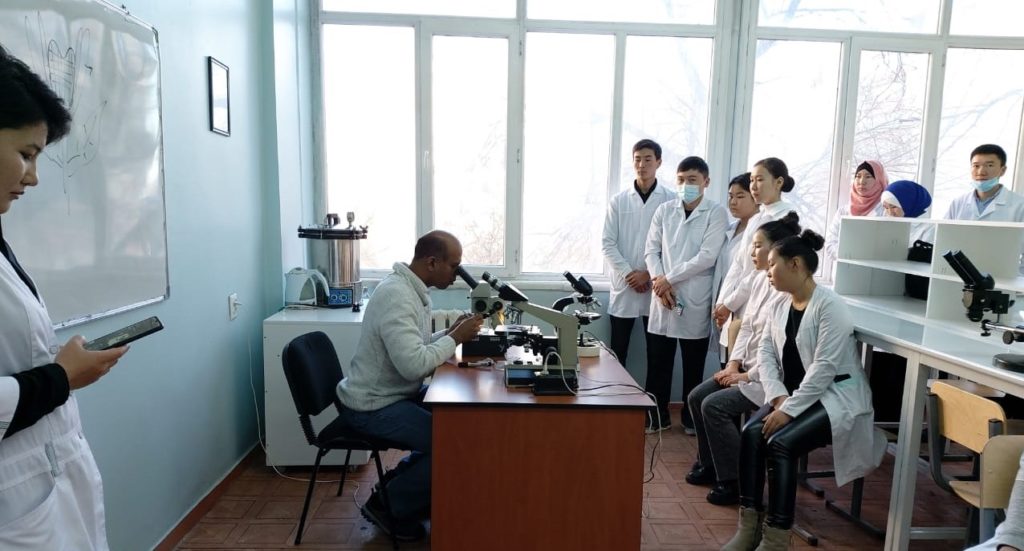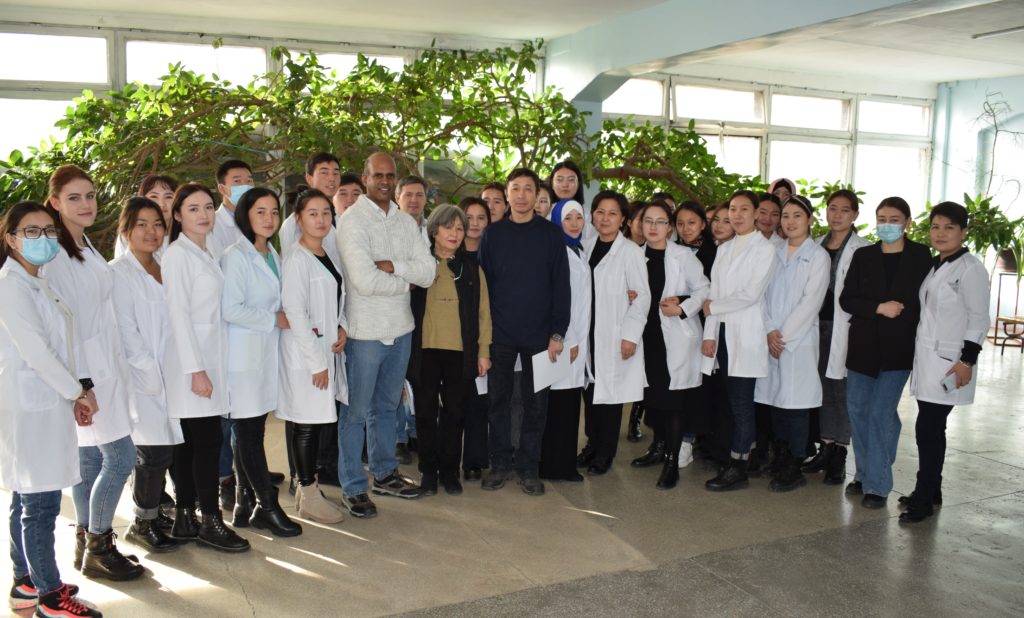
University of Maryland Eastern Shore expertise in biotechnology and precision plant breeding is being shared with the Kyrgyz National University in Kyrgyzstan through an international collaboration. Dr. Sadanand Dhekney, an associate professor in UMES’ Department of Agriculture, Food and Resource Sciences, traveled to the country from late November-early December 2021 through the Central Asia University Partnerships Program of the American Councils for International Education. In Kyrgyzstan, he called on 15 years of experience with precision breeding of grapes for disease resistance.
His mission was multi-faceted—to conduct a two-day hands-on workshop at the university and to visit vineyards and orchards for extension activities with local farmers. Over 40 students of KNU and their faculty members received training in plant tissue culture and genetic engineering during the workshop. In addition, Dhekney provided students with information about opportunities at UMES and encouraged them to apply to graduate programs.
“There was a significant amount of interest by KNU students and faculty to learn modern techniques in plant biology for crop improvement and how to apply these technologies in the agriculture sector,” Dhekney said.
Following the workshop, KNU hosts escorted Dhekney to the Issyk-Kul region to survey vineyards and orchards. Growers there, he said, focus on fruit crops, including grapes, apricots, apples, pears and sweet cherries. Dhekney worked with farmers on cultivation practices, pest and disease management strategies, crop production issues, irrigation practices, labor availability during harvesting, marketing, crop pricing and sustainability of crop production. Farmers, he said, were receptive to obtaining plant material free from endophytic viral and bacterial pathogens that are significant factors limiting crop production.
“A majority of fruit production in Kyrgyzstan is organic due to the favorable agroclimatic conditions,” Dhekney explained. “Their biggest challenges are crown gall and bacterial fire blight.”
Initial grant funds for the trip included the purchase of equipment and supplies for teaching and research projects at the university. Dhekney was instrumental in arranging additional funding for equipment needed for also establishing a biotechnology laboratory. He aims to help them fund the development of a grape germplasm repository and to develop a plant biotechnology curriculum at KNU, as well.
Gail Stephens, agricultural communications, University of Maryland Eastern Shore, School of Agricultural and Natural Sciences, gcstephens@umes.edu, 410-251-7009.
